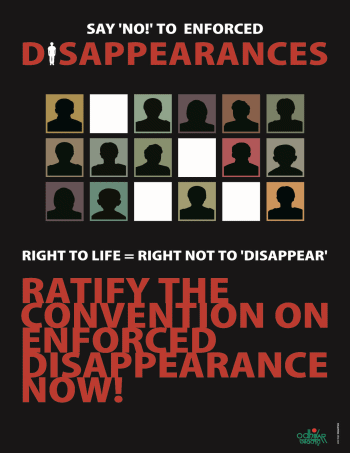Since its founding in 1994, Odhikar has consistently documented incidents of human rights violations perpetrated by the state. As Odhikar publishes its July–September 2025 quarterly report, the interim government, which was formed following a mass uprising that ended 15 years of authoritarian rule, has completed over one year in office. As in previous reporting periods, this quarter witnessed continued violations of human rights. This report presents a comprehensive account of these violations and calls upon the State to uphold its obligations and refrain from further violations of human rights.
On 5 August 2024, in the face of a student-led mass uprising, authoritarian ruler Sheikh Hasina, widely accused of grave human rights violations, including enforced disappearances, was forced to step down, and fled to India. Subsequently, the activities of her party, the Awami League, were banned by the interim government, formed on 8 August 2024. From exile, Sheikh Hasina and AL leaders and activists who fled with her have engaged in conspiracies to destabilise Bangladesh. These activities have perceivably contributed to a rise in criminal offenses across the country. Furthermore, the Indian government continues to ignore the notices from the Bangladesh government calling for extradition of the deposed Prime Minister.
In 2016, the former authoritarian government enacted the Foreign Donations (Voluntary Activities) Regulation Act to impose control over non-governmental organisations (NGOs). Sections 14 and 15 of this law stipulate punitive measures against any NGO or its personnel who make ‘adverse’ or ‘indecent’ remarks about the Constitution or constitutional institutions. Under this provision, if the government deems that an NGO has made such remarks about the Parliament, Judiciary, Law Commission, Election Commission, or Attorney General, it may suspend or cancel the organisation’s registration. This law is widely perceived to have been designed to suppress the activities of NGOs, particularly human rights organisations working to uphold civil and political rights and seek redress for victims of injustice. The interim government, formed through a popular uprising, must urgently amend this law to restore democratic space and protect freedom of expression.
The National Human Rights Commission is an institution that can play a vital role in addressing human rights violations. However, under the current legal framework, its mandate remains limited and its independence hampered. To effectively respond to incidents of human rights abuse, it is imperative to reform the relevant legislation and ensure transparent appointments, enabling the Commission to evolve into a strong and effective state institution dedicated to safeguarding human rights.
Incidents of custodial torture and deaths continue. This persistence is largely attributed to the longstanding culture of impunity enjoyed by law enforcement and the failure to implement the Torture and Custodial Death (Prevention) Act, 2013.
On 17 July 2025, the interim government ratified the Optional Protocol to the Convention Against Torture (OPCAT). It is a significant milestone that reflects the interim government’s commitment to human rights. For over three decades, Odhikar remained a vocal proponent of OPCAT ratification, and its efforts are now reflected in this long-awaited policy breakthrough. It is now the responsibility of the government to form National Preventive Mechanisms (NPM) under the OPCAT to ensure the welfare of those incarcerated and detained.
Additionally, the interim government last year acceded to the International Convention for the Protection of All Persons from Enforced Disappearance, which was applauded throughout the international human rights community. However, the IG should also now withdraw its reservations on Article 2(c) and Article 16(1) of the Convention on the Elimination of All Forms of Discrimination Against Women (CEDAW).
There has been no noticeable progress in bringing to justice the senior military officials accused of enforced disappearances, extrajudicial killings, and other human rights violations during the authoritarian rule of Sheikh Hasina, particularly those who fled the country following her overthrow.
Despite credible allegations of grave human rights abuses, the long-standing demand by human rights defenders to dissolve the Rapid Action Battalion (RAB) remains unmet.
The Indian BSF continues to perpetrate killings and abuses against Bangladeshi citizens along the Bangladesh–India border while Indian ruling establishment is reportedly pushing Rohingya and other Muslim communities across the border into Bangladesh unlawfully. The interim government must take a firm and proactive stance on this issue and strengthen the borders as well.
This report has been prepared based on reports from human rights defenders affiliated with Odhikar, as well as information and data published across various media outlets.




